Introduction
One of the wisest things anyone can do is to establish credit and start as early as possible, especially in the world of personal finance in the minds of young adults and teenagers. It does not matter whether one is planning to be qualified to have a mortgage later on, to have good rates on auto loans, or even to have the ability to manage their finances on their own; knowing how credit works and managing it is important.
Not every credit card, however, is made the same, particularly in meeting the needs of young adults and teenagers, as well as first responders, being two distinctly different needs in and of themselves. Finding the best credit card for young adults is the one that is less expensive in terms of fees and rewards and ensures the tools that, as a customer, you will be able to learn how to accumulate wealth instead of being in debt without much money to spend.
This may be the most extensive guide to the best credit card recommendations that a young adult may find. Also included is a customized recommendation to teenagers and first responders. We are also going to offer teen credit tips and young professional credit tips, which we will offer based on actual financial knowledge and experience to help you get around in the land of credit with your eyes wide open.
Why Young Adults Should Care About Credit Cards

In the world we live in today, credit is needed, and the sooner the better. Having a good credit history opens portals to chances that would have otherwise been kept closed. Nothing is easier than living in an apartment that you rent, owning a car, or getting hired at a job in some sectors like finance, tech, or government, provided you have a good credit profile. There are even insurance companies that put your credit score into consideration when pricing policies, so the better your credit score the more you may save monthly..
Although these are significant benefits, many young people are cautious about this move without a reason. Credit cards are also synonymous with the tales about crippling debt, a large interest rate mentioned on the card, and additional unreasonable spending. Because of this, many young adults and teens avoid credit altogether, thinking it is safer than exploring. The myth that the best cards are the ones that automatically result to debt is also one of the most harmful myths. Factually, credit cards are instrumentals-and just like any instrument, they will have the effects (positive or negative) associated with them given how they are utilized.
The reality is that young adults and credit cards may be a smart and empowering pair when the technique is met with knowledge and restraint. Proper use of credit should not be viewed by young adults as a place of peril, but rather as an area of opportunity: the opportunity to demonstrate financial responsibility, acquire money management skills, and begin creation of a vastly beneficial credit rating.
By making habitually low purchases and paying off this balance every month, young adults can build up a decent payment history in which they do not pay interest at all. Such a kind of responsible behavior not only creates a good credit profile but also creates a good habit that will help them exactly when applying for a car loan, mortgage, or even a premium credit card that gives them better rewards.
Further, most credit cards that make it simple to use are tailored towards first time users- including low spending limits, budget management, mobile alerts, and even budgeting facilities that can help a user avoid overspending. Secured credit cards or becoming an authorized user on a parent account are better alternatives to those who are not ready to apply for a conventional credit card.
Key Considerations Before Getting a Credit Card
Before applying for a credit card for young adults, it’s essential to ask a few critical questions:
- Why do you want a credit card?
Is it to establish credit and accrue rewards or is it to have a financial backup? - Do you have a repayment strategy?
Knowing how to pay more than what is required and how interest rates operate are must-know things. - Are there better alternatives for now?
Other options such as joining in as an authorized user under a parents account, using secured credit cards, or credit-builder loans can be stepping blocks instead of facing a traditional card as bearable.
Acquiring a credit rating is a long-distance race. Planning helps a lot in avoiding financial traps.
Best Credit Card for Young Adults
When getting your first credit card, simplicity and benefits matter most. Here are top picks:
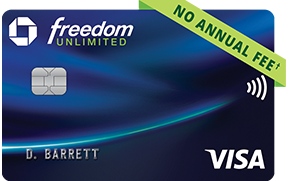
- Why It’s Great: A straightforward card for students to start building credit.
- Key Perks:
- Earn 1% cashback on all purchases.
- No annual fee.
- $20 good standing reward annually for five years.
- Simple mobile and online account management.
- Zero liability protection.
- Access to Chase Credit Journey for free credit score tracking.
- Flexible payment options.
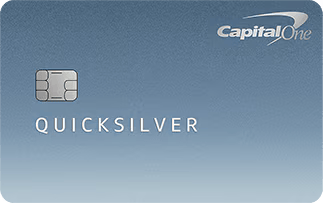
- Why It’s Great: Offers unlimited 1.5% cashback on all purchases.
- Key Perks:
- No annual fee.
- Travel accident insurance.
- 24/7 customer support.
- No foreign transaction fees.
- Automatic credit line reviews.
- Free tools for credit monitoring.
- Rewards never expire.
Best Credit Card for Young Adults with Good Credit
If you’ve already established some credit history and have a good credit score, you can qualify for cards with more perks. Here are some excellent options for credit card for young adults:
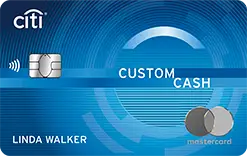
- Why It’s Great: Earns 2% cashback—1% on purchases and 1% when you pay your bill.
- Key Perks:
- No annual fee.
- Low APR for balance transfers.
- Easy rewards redemption.
- Zero liability for unauthorized charges.
- Earn cashback on every purchase without categories.
- Extended warranty on purchases.
- Competitive introductory APR.
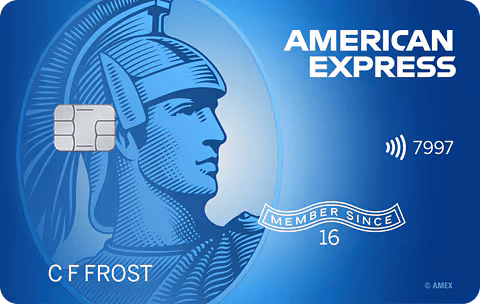
- Why It’s Great: Great for everyday purchases like groceries and gas.
- Key Perks:
- Earn 3% cashback on groceries.
- 2% cashback at gas stations.
- No annual fee.
- Free ShopRunner membership for faster shipping.
- Purchase protection and extended warranties.
- Access to Amex Offers for discounts.
- Reward points can be converted to statement credits.
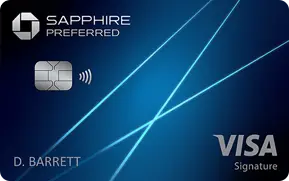
- Why It’s Great: Ideal for young adults who love to travel.
- Key Perks:
- Earn 2x points on travel and dining.
- 25% bonus when redeeming for travel through Chase Ultimate Rewards.
- Trip cancellation/interruption insurance.
- No foreign transaction fees.
- Primary rental car insurance.
- Points transfer to travel partners.
- Extensive travel and purchase protections.

- Why It’s Great: Designed for those who want to avoid traditional credit card fees.
- Key Perks:
- Earn 1% cashback immediately, increasing to 1.5% with on-time payments.
- No annual fees, late fees, or foreign transaction fees.
- Reports to all three credit bureaus.
- Free financial management tools.
- Competitive credit limits for new users.
- No deposit required for approval.
- Build credit with responsible usage.
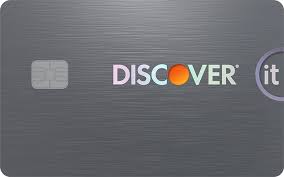
- Why It’s Great: A secured card to help build or rebuild credit.
- Key Perks:
- No annual fee.
- Earn 2% cashback at gas stations and restaurants.
- 1% cashback on other purchases.
- Refundable security deposit.
- Transition to an unsecured card with good performance.
- Free access to your FICO credit score.
- Cashback Match for the first year.
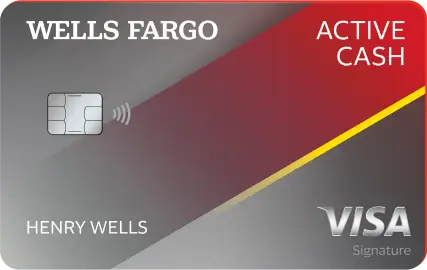
Wells Fargo Active Cash® Card
- Why It’s Great: Simple, unlimited rewards on all purchases.
- Key Perks:
- Earn 2% cashback on every purchase.
- $0 annual fee.
- Introductory 0% APR for purchases and balance transfers.
- Contactless payment option.
- Zero liability for unauthorized transactions.
- Travel and emergency assistance services.
- Easy rewards redemption.
Credit Cards for Teenagers
Age-wise, people should be 18 years old or older and make their credit card application. Nevertheless, children can also start developing good credit at a young age:
Even though until age 18, teenagers are not capable of getting their credit card and starting their credit history, there are still smart and practical methods they could use in order to start building their credit earlier. Establishing a good foundation early will enable the teens to have a good credit history and the necessary financial skills, thus becoming financially literate and responsible at a level that many adults are not. The most optimal ways to build credit safely and efficiently are discussed below by teenagers.
1. Authorized User on a Parent’s Credit Card
Becoming an authorized user on a parent’s or a guardian’s credit card could prove to be one of the easiest and best methods of approach to be used by teenagers. It implies that the teenager will have his/her card that will be connected to the parental account and may make purchases that weigh upon the parent, who will have to pay the balance.
Benefits:
- The student will get help due to the good payment history that is already established by the parent and can be accumulated into his credit score.
- The teen does not need to have a credit check.
- The parents have restrictions, limits, and can track the expenditures, which creates a secure learning environment.
- Certain credit scoring formulas do factor in the work of the authorized user, which is beneficial to the teen so he can have the advantage of establishing credit without assuming a legal obligation.
This process is perfect when a person should gradually become responsible with money and should be under strict control.
2. Secured Credit Cards
As soon as a teenager reaches the age of 18 and possesses their means of income, he/she can have access to a secured credit card. The cards will have to use a refundable security deposit, usually at least $200 or more, that also serves as the limit to the credit that the cards hold.
Benefits:
- Teens get to know how to go about managing credit without much risk.
- These payments can be reflected on your credit reports as they help in building credit history.
- Most securities cards allow a transition to unsecured cards to be issued after some time upon responsible management of the card.
This is a practical tool in developing experience in using credit in the real world without exposure to a lot of financial risk for teenagers.
3. Credit-Builder Loans
Another tool that not many people know about, but that can be very helpful, is a credit-builder loan, usually provided by credit unions, community banks, and some fintech applications. In these loans, the money borrowed is put in a secured account and the borrower pays on a monthly basis. When the loan has been paid, the money is unlocked to the loan owner.
Benefits:
- Timely finances are reported to the credit agencies, establishing an account with a good history of payments.
- There is no requirement to have a credit.
- It enables one to learn the importance of saving and developing credit.
This is a good method of establishing financial discipline as well as making credit output perfect for the teens who get some consistent income.
Credit Tips for Teens: Habits That Shape a Strong Financial Future
Just having access to credit tools isn’t enough. Teens need guidance and smart habits to make the most of these opportunities.
Key Credit Tips for Teens:
- Always Spend Within Limits: Never treat a credit card like “free money.” Only charge what can be repaid easily.
- Pay the Full Balance Each Month: This helps avoid interest and establishes a clean payment history.
- Monitor Your Credit Score Regularly: Use free tools to check credit reports and track progress. Catching errors or suspicious activity early can prevent long-term damage.
- Learn to Read Credit Statements: Understand how interest is calculated, when payments are due, and how late payments can affect your score.
- Ask Questions and Learn from Parents or Mentors: The teenage years are a time for learning, and adult guidance can make all the difference.
Credit Cards for First Responders
Frontline heroes, or firefighters, police employees, paramedics, EMTs, and others, are the first responders who protect communities in the best of ways. To realize their priceless service, most financial institutions have come up with custom credit card products that are designed to reward and even sustain their special lifestyle and financial wants. These will be special credit cards that come with special benefits and flexible provisions that can fit in with the busy lives, erratic spending, and timely dreams of this group of first responders.
The appropriate credit card can not only provide financial benefit, but no matter what sort of gear you are equipping, what sort of long shifts you are working, or dealing with the everyday purchases of life, you can experience the ease of mind that comes with having the right card.
Benefits of Credit Cards for First Responders
Credit cards for first responders are not about rewards; it is about acknowledging these members of society by offering them support as well as access. The following are some of the most valuable benefits of these cards:
- Enhanced Cash Back on Essentials: Through many of the first responder credit cards themselves, higher percentages of cash back are offered on products like gas, grocery items, restaurants, and medical costs, which are related to their usual needs. This assists in defraying the expense of necessities and extends every dollar further.
- Special Signup Bonuses: There is usually a good welcome bonus, such as getting a 150- or 200-dollar bonus, but when spending some minimum amount within the first few months, they offer a value right away.
- Flexible Redemption Options: Rewards awarded can be normally claimed through statement credits, direct deposits, travel bookings, gift cards, or gifts, which provide the flexibility required by busy professionals.
- No Annual Fees: Most cards do not face an annual fee at all, and the first responders are guaranteed to get the maximum out of their cards without having to be haunted by the low-interest fees devouring their income.
- Supportive Customer Service: The providers that serve the first responders may offer heightened customer service, fraud protection, and dispute resolution services, so no disruption can be introduced.
Recommended Credit Cards for First Responders
Here are two standout credit card options that cater directly to the needs of first responders:
1. Navy Federal Credit Union More Rewards American Express® Card
Ideal For: Military families, firefighters, police, and EMTs affiliated with Navy Federal Credit Union.
Key Features:
3X points on groceries, gas, and restaurants
1X point on all other purchases
No annual fee
No foreign transaction fees
Access to exclusive Amex offers
Why It’s Great: This card rewards everyday spending categories and comes with premium customer support and flexible redemption options, making it a smart choice for first responders managing dynamic lifestyles.
2. PenFed Power Cash Rewards Visa Signature® Card
Ideal For: First responders and essential workers who are PenFed Honors Advantage members.
Key Features:
2% unlimited cash back on all purchases (for eligible members)
1.5% cash back for non-members
$100 bonus offer after qualifying spend
No annual fee
Why It’s Great: This card offers consistent, no-fuss cash back on every purchase—ideal for first responders who don’t want to keep track of rotating categories or point systems.
Why First Responders Should Consider Credit Union Memberships
Among the best credit cards available to first responders, the majority could be found in the institutions that are membership-based, mostly credit unions. Credit unions such as Navy Federal and PenFed usually have more favorable conditions of credit conditions compared to large banks, including:
Lower interest rates on revolving balances
More lenient credit approval criteria
Personalized member service
Community-driven values
These institutions also tend to provide financial education to first responder families, loan assistance, and emergency funds programs, besides offering a credit card each time they have an emergency.
How to Choose the Right Credit Card
Frequently Asked Questions
Can a teenager get a credit card?
In theory, yes, but with parent assistance. Minors below the age 18 will be able to get permission to use a parental account. When they are 18, it is possible to invest in a secured or student credit card which will frequently demand evidence of an independent revenue.
What’s the best way for a young adult to build credit?
Use it irresponsibly, use a low-limit card to start with, use a low-limit card, and pay it off every month, and watch your credit score. A newcomer should consider secured cards or student cards that do not require paying an annual fee.
Are there credit cards specifically for first responders?
Although there are only a few cards specifically issued to first responders, there are still lots of financial institutions that will give a bonus or a special reward to first responders out there who are serving the community.
Conclusion: Start Your Financial Journey Today
Obtaining a credit card at a young adulthood stage is much more than being able to buy something you want to buy; it is more of a stepping-stone to lifelong financial empowerment. In a world where your credit score can determine whether you get that apartment and auto loan, affordable insurance, and even that job in the first place, an excellent credit rating is something of a head start.
No matter what stage you are in, whether you are a teenager going through your first financial adventures, a college student trying to find your footing with budgets and books, or finally a young professional trying to create financial independence or a first responder working to serve your community but also have personal targets to meet and achieve, your choice of credit card can be a great weapon in your arsenal. When selected wisely and used responsibly, it becomes a gateway to:
- Establishing a positive credit history
- Gaining access to valuable rewards programs
- Developing essential money management skills
- Managing emergency expenses with confidence
- Setting yourself up for better financial products in the future, like loans, mortgages, and investment opportunities
This guide has provided insightful information, skills on building credit and a guide on how to select the correct card depending on your own particular conditions. Whether simply being an authorized user or delving into the world of business credit cards without the need to undergo a credit check, these are tips meant to prevent one from making a waste of an opportunity and create the credit profile a person can use, instead of it being used against them.
Your Next Step Is the Most Important One
There are two important things to remember here: the first is obvious: credit is not a quick fix—it is a long-running plan. The sooner you develop good habits you will have more options to work with, as you grow as you pay on time, spend what you can afford and know the terms of your cards.
Therefore, do not hesitate. Find the next step in this path with certainty. Make a comparison of options, balance benefits and get a credit card that suits your aims and not only at this point of time but at the future you need to envision.
Start strong. Stay smart. Your financial journey begins now—and the habits you build today will shape your financial success for years to come.
Start smart, build wisely, and watch your financial confidence grow.
